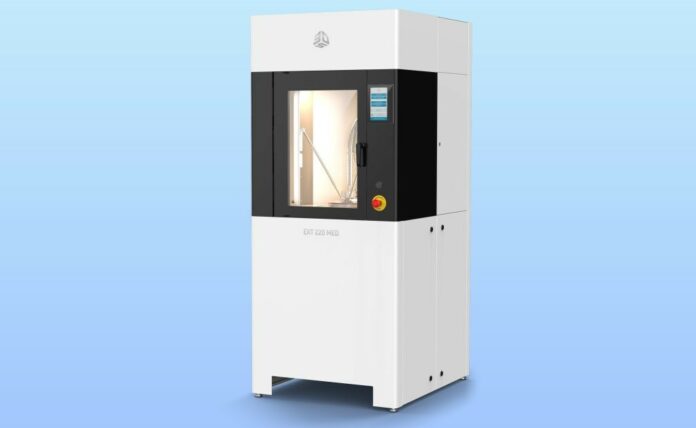AM solutions provider 3D Systems collaborated with the University Hospital Basel to design and produce Medical Device Regulation (MDR)-compliant 3D-printed PEEK facial implant.
Prof. Florian Thieringer and Dr. Neha Sharma, together with their team of biomedical engineers, took care of the design and used the 3D Systems EXT 220 MED 3D printer for the manufacture.
The same 3D printer was used last year to develop an MDR-compliant facial implant with Evonik’s PEEK material.
In this specific case, the cleanroom-based architecture of the printer and simplified post-processing workflows enable the efficient production of patient-specific medical devices directly at the hospital.
The custom-made device aimed to address a patient’s unique need and was used as part of a successful surgery completed at the hospital on March 18, 2025.
“Our goal is always to provide the best possible care for our patients,” said Prof. Thieringer. “Being directly involved in both the design and manufacturing of patient-specific implants — right here in our hospital — allows us to tailor treatments precisely to individual needs, respond faster, and improve surgical outcomes. The ability to produce implants on demand represents a new era in personalized care.”
It is anticipated that the use of 3D-printed facial implants will accelerate based on the availability of advanced technologies. As explained in this dossier on “Approval of medical 3D printed products and their market access”, it’s important to keep in mind that there are always medical professional organizations that continuously release guidelines for utilizing 3D printing at the point of care. Those guidelines may include, for instance, recommendations on how to consistently and safely produce 3D-printed anatomical models generated from medical imaging, as well as criteria for the clinical appropriateness of using 3D-printed anatomical models for diagnostic use.
“The rapid adoption of the EXT 220 MED by leading healthcare institutions combined with our expanding applications pipeline, underscores the transformative power of 3D printing in clinical settings,” said Stefan Leonhardt, Ph.D., director, medical devices, 3D Systems. “We are proud to collaborate with the pioneering clinicians at University Hospital Basel and other leading hospitals worldwide to expand the applications that can be addressed with additive manufacturing. Since its launch in August 2023, our innovative solution has already been utilized in more than 80 successful cranial implant surgeries at partner hospitals, demonstrating its swift integration and real-world effectiveness in delivering personalized patient care. The successful use of the EXT 220 MED for maxillofacial implants showcases our commitment to ongoing innovation that delivers personalized healthcare solutions for new applications.”
Looking for a job in the AM industry or hiring new talent? You can post job opportunities on 3D ADEPT Media for free or explore openings via our job board. Stay connected by following us on Facebook, Twitter, LinkedIn & Instagram, and subscribe to our weekly newsletter for the latest updates. Have a story to share or want to be featured in our next digital magazine issue? Send it to editor@3dadept.com !






